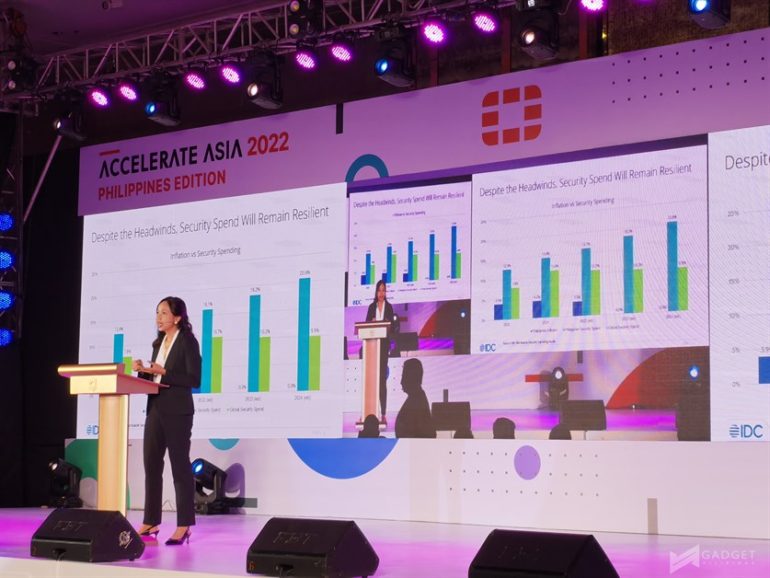
Fortinet, a gloabl leader in broad, integrated, and automated cybersecurity solutions, recently released the Asia findings of the global 2022 Cybersecurity Skills Gap Report. It reveals that the cybersecurity skills shortage continues to have challenges and repercussions for organizations in Asia, including security breaches and subsequent loss of money.

As a result, the skill gap remains a top concern for C-level executives and is also increasingly becoming a board-level priority. The report which surveyed IT and cybersecurity decision makers across countries like Singapore, Hong Kong, Thailand, Hong Kong, Malaysia, Indonesia, and Philippines also suggests ways the skill gap can be addressed such as through certifications and training to improve employees’ education.
The Widespread Impact of the Cybersecurity Skills Shortage
(ISC)2’s 2021 Cyber Workforce Report shows that Asia-Pacific has the largest regional workforce gap of 1.42 million. Despite the workforce gap for Asia-Pacific having decreased from the previous year, a lot of work still needs to be done.
With increasing costs of breaches on organizations’ profits and reputation, cybersecurity is becoming a board level priority. Across Asia, 89% of organizations that have a board of directors reported their boards asking questions that are specifically about cybersecurity, while 79% have a board of directors who has recommended increases in IT and cybersecurity headcount.
Advancing Cybersecurity Skills Through Training and Certifications
Fortinet’s skills gap report demonstrated that training and certifications are critical ways organizations seek to further tackle the skills gap. The regional report revealed that 97% of leaders believe technology-focused certifications positively impact their role and their team, while 86% of leaders prefer to hire people with certifications. 89% of respondents also shared that they are willing to pay for an employee to achieve cyber certifications. A major reason for certifications being highly regarded is due to their validation of increased cybersecurity knowledge and awareness.
What impacts have certifications made?
Apart from valuing certifications, 93% of organizations have implemented a training program to increase cyber awareness. However, 51% of leaders believe that their employees still lack necessary knowledge, raising questions about how effective their current security awareness programs are.
For organizations looking for security awareness training, Fortinet offers a Security Awareness and Training Service through the award-winning Fortinet Training Institute. The service further protects organizations’ critical digital assets from cyber threats by building employee cybersecurity awareness.
The service receives updates from Fortinet’s FortiGuard Labs threat intelligence so that employees are learning and keeping up with the latest evolving cyberattack methods to prevent company breaches and risks from being introduced.
Addressing Recruitment and Retention Challenges with Diversity Commitments
It is a challenge for organizations to find and retain the right people to fill critical security roles ranging from cloud security specialists to SOC analysts. The report also found 60% of leaders in Asia admitting their organization having struggles with recruitment and 57% struggle to retain talent.
Among hiring challenges is the recruitment of women, new college graduates and minorities. Regionally, 76% of organizations see the recruitment of new graduates as the top hiring hurdles, followed by 75% of leaders for the recruitment of women. 62% said hiring minorities has been challenging.
As organizations look to build more capable and diverse teams, 90% of Asian companies have explicit diversity goals as part of their hiring strategy, according to the report, which also demonstrated that 75% of organizations have formal structures to specifically recruit more women and 59% have strategies in place to hire minorities. 65% of organizations even have efforts to hire more veterans.

About the Fortinet Skills Gap Survey:
- Part of the global report, the regional survey was conducted among more than 110 IT and cybersecurity decision-makers from Singapore, Thailand, Hong Kong, Philippines, Malaysia, and Indonesia.
- Survey respondents came from a range of industries, including technology (36%), manufacturing (17%), and professional services (11%)
For more information about the 2022 Cybersecurity Skills Gap Report, click here.
Emman has been writing technical and feature articles since 2010. Prior to this, he became one of the instructors at Asia Pacific College in 2008, and eventually landed a job as Business Analyst and Technical Writer at Integrated Open Source Solutions for almost 3 years.













